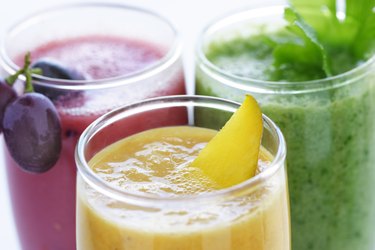
Adding protein to your fruit smoothie makes it into a muscle-building post-workout snack or a hunger-busting mini-meal. Blending fruit smoothies at home also allows you to control the ingredients, so you escape the added sugar and calories often found in juice-bar versions. The amount of protein powder you add to a smoothie depends on your goals and the type of powder you are using.
Types of Protein
Video of the Day
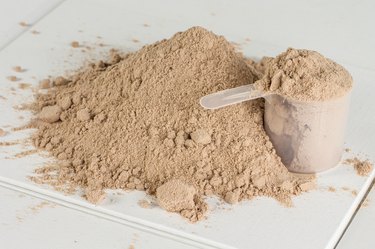
You can purchase many different types of protein powder, depending on your dietary preferences and goals. Whey protein, a derivative of milk, is a popular choice among people looking to build muscle as it is quickly digested and provides all the amino acids you need to stimulate muscle synthesis. Casein protein is the other type of protein found in milk, but is not as readily digested as whey. Casein delivers amino acids more slowly to your muscles and is sometimes recommended prior to bedtime to prevent overnight breakdown of muscles. Egg white protein powder provides a complete protein for those who are allergic to milk. Soy protein may also help stimulate muscle growth and may contribute to lower cholesterol levels and improve heart health. Soy protein is complete and vegetarian. Other vegetarian protein powders that are not complete, meaning they are missing one or more of the amino acids your body needs to obtain from diet, are hemp, pea and brown rice.
Video of the Day
Adding Protein to Smoothies
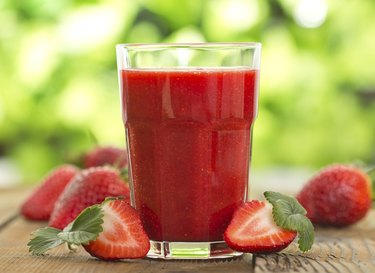
Most protein powders come with a scoop inside the container for easy measuring. These scoops range from 2 tablespoons to 1/4 cup of powder. The amount of protein in a powder depends on the type of protein powder and the brand. Whey, soy and egg white protein generally contain between 15 and 25 grams of protein per serving, or 1 to 2 scoops. Incomplete vegetarian proteins generally contain 7 to 13 grams of protein per serving, or 1 to 3 scoops. You could also weigh your powder before adding it to a smoothie; generally, 30 grams is one serving.
How Much is Too Much
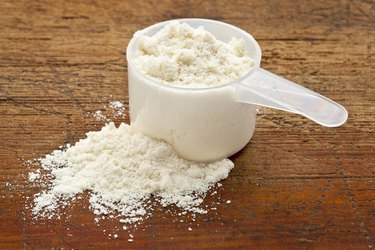
You do not need more than 30 grams of protein in one sitting to stimulate muscle growth. A study in the "Journal of the American Dietetic Association" published in September 2009 found that consuming more than 30 grams of protein at one meal added no additional muscle-building benefit. Your body excretes extra protein in the urine, uses it for energy or stores it as fat.
Considerations
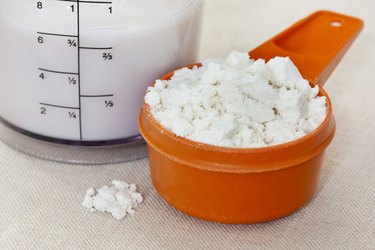
Some protein powders contain added carbohydrates and supplements, increasing their calorie content and decreasing the amount of protein per scoop. Adding too much protein can affect the taste of your smoothie. Brown rice protein, for example, can create a chalky texture and taste if you add more than one scoop. Remember to take into account the other protein-containing foods you add to your smoothie. A drink made with 1 cup of milk, 1/2 cup of yogurt and 20 grams of protein powder exceeds 30 grams of total protein.